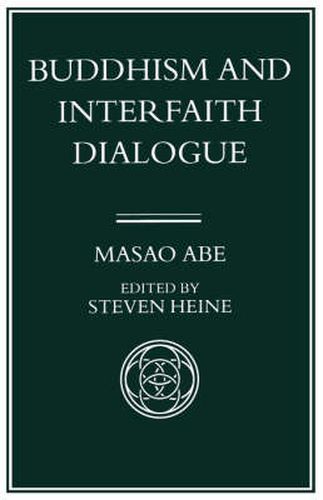Readings Newsletter
Become a Readings Member to make your shopping experience even easier.
Sign in or sign up for free!
You’re not far away from qualifying for FREE standard shipping within Australia
You’ve qualified for FREE standard shipping within Australia
The cart is loading…






The first of a two-part sequel to the award-winning Zen and Western Thought, this book attempts to clarify a Buddhist view of interfaith dialogue from various points of view. The writings in this volume are divided into three parts.
Part One focuses on how Buddhism approaches and contributes to interfaith dialogue, that is, how Buddhism represents a methodological model that serves as a basis for the possibility of dialogical exchange.
Part Two contains four essays on the relationship between Buddhism and Paul Tillich, the leading modern systematic theologian who drew on mystical sources and was also receptive to Eastern thought in developing his understanding of non-being or negation.
Part Three continues a discussion of earlier themes and opens up several new issues, particularly those involving the role of meditation in the East and West and the ethical implications of the Buddhist doctrine of karma in comparison with Christian moral activity. Topics explored include the Buddhist notion of emptiness, liberation, justice, faith, and ethics.
$9.00 standard shipping within Australia
FREE standard shipping within Australia for orders over $100.00
Express & International shipping calculated at checkout
The first of a two-part sequel to the award-winning Zen and Western Thought, this book attempts to clarify a Buddhist view of interfaith dialogue from various points of view. The writings in this volume are divided into three parts.
Part One focuses on how Buddhism approaches and contributes to interfaith dialogue, that is, how Buddhism represents a methodological model that serves as a basis for the possibility of dialogical exchange.
Part Two contains four essays on the relationship between Buddhism and Paul Tillich, the leading modern systematic theologian who drew on mystical sources and was also receptive to Eastern thought in developing his understanding of non-being or negation.
Part Three continues a discussion of earlier themes and opens up several new issues, particularly those involving the role of meditation in the East and West and the ethical implications of the Buddhist doctrine of karma in comparison with Christian moral activity. Topics explored include the Buddhist notion of emptiness, liberation, justice, faith, and ethics.